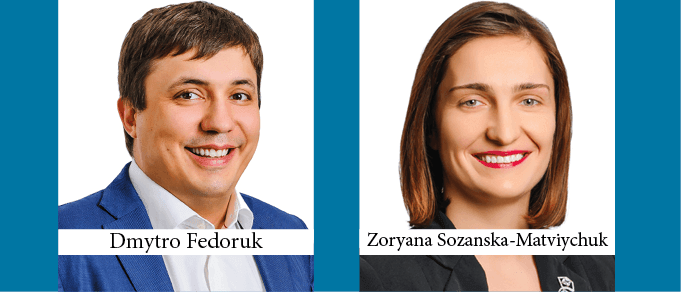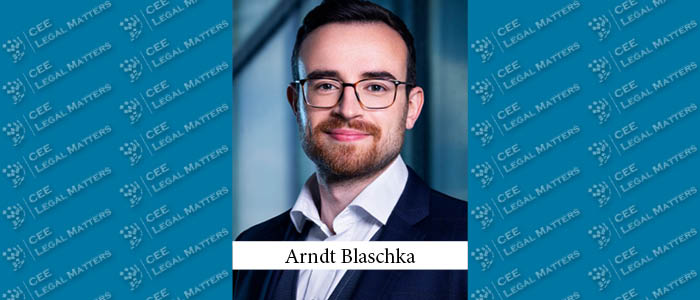The implementation of the EU’s fourth money laundering directive (2015/849/EU, or MLD4) is a subject of significant interest in Romania, as the process of adopting a new Money Laundering Bill (MLB) in line with the provisions of the MLD4 to replace the current Money Laundering Act is in full progress.
Certificates Attesting the Ownership of Lands Obtained via the Privatization Process
Due to multiple murky provisions in the applicable legislation, the privatization process in Romania has triggered a number of legal battles, varying from the rescission of share sale purchase agreements concluded between the Romanian state (acting through various entities) and investors for the investors’ failure to comply with investment obligations to the recognition or protection of certain rights arising from the privatization itself.
Ukraine’s Energy Market Developments
Last year Ukraine took several significant steps to encourage investments into the energy market. The Government announced a strategic goal of making Ukraine self-sufficient in energy and abandoning its dependence on imported gas.
Mining Business: At the Mercy of Local Municipalities?
Starting or continuing a mining project has always been subject to various licensing requirements. However, an amendment to spatial planning laws that became effective on March 15, 2019 increases the regulatory challenges faced by investors by introducing a completely new condition for obtaining the local municipality’s blessing, even for operations that are already underway. Therefore, the aftermath of the most recent regulatory changes should not be underestimated, as the number of mining sites exceeds 800 in Hungary.
Contemporary Search for a New Czech Energy Mix
Establishing a real and sustainable energy mix is a crucial task for every democratic state. In addition, any energy mix that has been chosen and put in place may change. Indeed, it has to, if the terms and conditions on which it was established undergo important changes. This, of course, applies in the Czech Republic as everywhere else.
Liberalization of the Bulgarian Energy Market: Process in Progress
The full liberalization of the Bulgarian Energy market has been the main focus in the sector for the last 18 months and continues to be the government’s objective.
Overhaul of the Slovak System for Support of Renewable Energy Sources
The Slovak system for the support of renewable energy sources has been marked in recent years by a lack of transparency and strategic vision. Even though the Slovak Republic undertook to increase its share of energy from renewable sources to 14% by 2020, in fact in recent years the share of renewables in energy consumption has actually decreased. “Allegedly for technical reasons, virtually no renewable electricity sources have been connected to electricity distribution networks since 2014.”
Support Scheme for Renewables in Serbia: A New Chapter
At the end of 2018, the Government of the Republic of Serbia extended the validity of the Decree on Incentive Measures for the Production of Electric Energy from Renewable Energy Sources and High-efficiency Cogeneration of Electric Energy and Thermal Energy (the “FIT Decree”) until the end of 2019. The FIT Decree was initially valid until the end of 2018.
The Regulation of Renewable Energy in Russia
Almost 20 years ago, the Russian Government decided to develop a renewable energy sector and promote renewable energy projects in the country. These efforts brought huge investments and complex technologies to the Russian renewable energy sector, which now features major global industry players like Vestas, Fortum, Siemens, Enel, and Lagerwey.
Turkey’s Advancement in Renewable Energy: What’s Next?
Introduction: As one of the top twenty energy consumers worldwide, Turkey experienced rapid economic growth beginning in the early 2000s, and its energy requirements increased accordingly. The demand for energy in Turkey has been growing at an average rate of 6.5% over the past decade and official reports predict that the country will continue at this pace through 2020. The high demand for energy, liberal market conditions, and government incentives are attracting both domestic and foreign investors to the Turkish renewable energy market.
Will Romania Become One of the European Powers in the Energy Sector?
Will Romania Become One of the European Powers in the Energy Sector? The answer seemed clear last year: Yes it will, as the recent gas discoveries in the Black Sea offer Romania the opportunity to become an important voice on the European Union’s energy market.
2019 Amendments of the Croatian Renewables Act
In December 2018, the Croatian Parliament adopted amendments to the Renewables Act and the Government adopted two implementing regulations, which jointly apply as of January 1, 2019 (the “2019 Amendments”). In this article we briefly outline the 2019 Amendments and then discuss how they affect the current Croatian incentives system for renewable energy sources (RES) and new investments in RES.
Energy in Montenegro
Even though Montenegro, located in Southeastern Europe on the Adriatic Coast and with a population of just over 600 thousand people, is a small country, its vast energy potential has been recognized by numerous international investors and by the Montenegrin Government.
Guest Editorial: Welcome to the Slovenian Legal Market
After a few troublesome years during the global financial crisis, it seems like Slovenia is on a positive economic route again. On December 14, 2018, S&P Global Ratings affirmed an “A+/A-1” credit rating for Slovenia with a positive outlook. Slovenian GDP has grown in the last two years between three and four percent annually, with a growth forecast for 2019 of 3.4 percent.
E-Mobility: Opportunity or Inconvenience for the Commercial Operators of Parking Places?
The number of electric vehicles in Hungary is rising. In response to this, the National Building Regulation of Hungary (OTEK) has established new requirements for the provision of recharging points, with a January 1, 2019 deadline. Although these new rules have had some visible results, there is significant delay in establishing full compliance. Those who fail to meet the requirement may anticipate the imposition of penalties.
Recent Developments Regarding Hungarian Insolvency Law
The Hungarian Government is considering creating new legislation to cover all kinds of insolvency proceedings, including bankruptcy, liquidation, winding-up, and dissolution proceedings. This move has been roundly welcomed, especially by creditors, as the current law is from 1991, and although it has been amended numerous times, it counts as an outdated and much-criticized piece of legislation.
Guest Editorial: Winners Hunt in Packs
As a first-generation lawyer I did not have a profound career perspective when I graduated from law school in the early ‘90s. I saw a job ad in a newspaper – “International law firm looks for junior lawyers” – and even though I had no clue what an “international law firm” was, I had nothing to lose, so I thought it would be worth seeing how a real job interview worked. In the end I was selected and I decided to stay … and I have never regretted that decision.
Guest Editorial: Digitalize
Although I am a bit old to claim that my generation has two birthdays – a natural one and an Internet one – I believe, for that same reason, that we have the experience to assess progress in respect of ongoing digitalization trends.









































